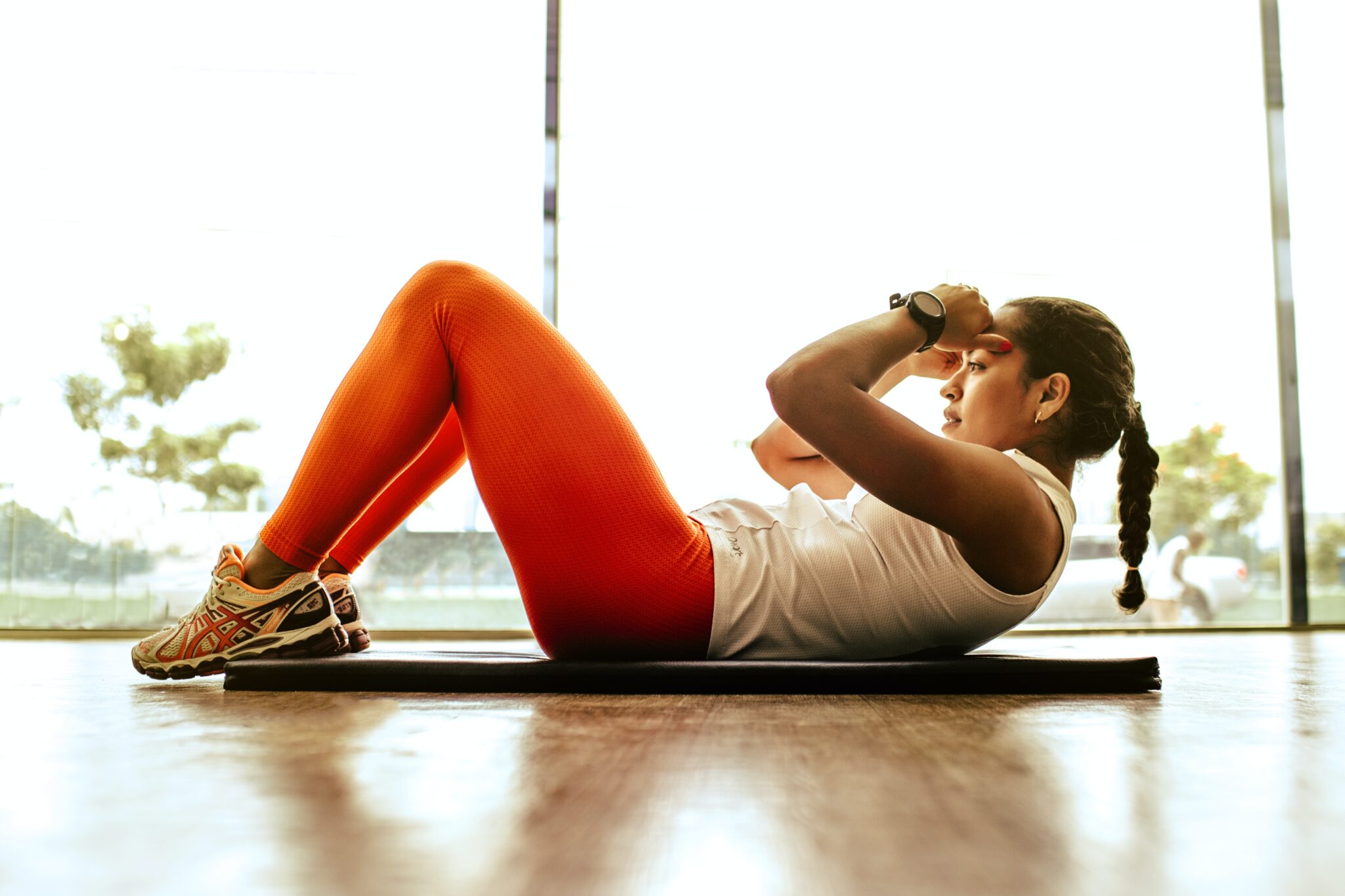Health is something that we take for granted, until it’s no longer there. And when it comes to our health, the quality of our lives often hinge on how well we take care of ourselves both physically and mentally. In this article, we will introduce you to seven ways to improve your health in 7 days or less. From getting more exercise to eating better foods, these tips are sure to help you feel better overall. So whether you’re looking to tighten up your abs or just feel more energetic, read on for some helpful advice on improving your health in a short period of time.
Get a Good Night’s Sleep
There are a few simple things you can do to improve your health in days or less. Getting a good night’s sleep is one of the most important, and often overlooked, components of a healthy lifestyle.ufficient restorative sleep can help reduce stress, boost your immune system, regulate mood swings, and even improve memory recall. Here are some tips on how to get the best sleep possible:
1. Make sure your bedroom is dark and quiet.
2. Establish a regular bedtime routine including winding down for at least 30 minutes before falling asleep and disconnecting from electronics screens earlier in the evening.
3. Create an relaxing atmosphere in your bedroom by using calming aromatherapy or candles.
4. Avoid caffeine close to bedtime as it can disturb sleep patterns. If you do drink coffee before bed, make sure it’s not too strong or acidic as these types of drinks can also create restless nights sleep.
Get Enough Exercise
1. It is important to get enough exercise on a regular basis in order to improve your health. This can be done through different activities, such as walking, running, biking, swimming, and incorporating strength-training into your routine.
2. There are many ways that you can get the exercise that you need without leaving your home or having to go to a gym. You can try incorporating some of the following exercises into your day:
-Walking: One easy way to get some exercise is by walking around your neighborhood or town. Take a brisk walk for 30 minutes each day and see how you feel after a few weeks.
-Swimming: Swimming is another great way to get cardiovascular exercise and lose weight at the same time. Try swimming for 30 minutes three times per week and see how you feel afterwards.
-Strength Training: Strength training is another great way to burn calories and build muscle. When done correctly, it can also help with reducing anxiety and depression symptoms as well as improving overall quality of life. Consider investing in an equipment set that will allow you to do more variety in your workouts, like barbells or resistance bands for home use.
Eat Healthy Foods
1. Eat Healthy Foods
One of the best ways to improve your health is by eating healthy foods. By filling your stomach with nutritious items, you’ll reduce the amount of stress hormones that are released and lead to a healthier lifestyle overall. When possible, try to stick to whole food sources of nutrients rather than processed foods. This will help you feel fuller longer and avoid unhealthy weight gain.
2.brace Yourself For Stress
Stress is an unavoidable part of life, but it can have negative consequences on your health if not managed properly. The links between stress and poor health are well documented, and include everything from heart disease to obesity. To avoid these negative effects, make sure to take time for yourself every day and relax accordingly. Meditate or do yoga for example can help you destress quickly and effectively.
3. Make Physical Activity A Habit
Physical activity isn’t just good for your overall health; it’s also important for reducing stress levels. A recent study found that people who exercised regularly experienced a 50% reduction in their levels of stress hormones compared to those who didn’t exercise at all! If you’re not currently active, start small by trying out some easy exercises like walking or swimming – even doing 30 minutes a day can make a big difference over time!
Quit Smoking
Quitting smoking is one of the simplest things you can do to improve your health. Cigarette smoke contains over 4000 chemicals, most of which are toxic. Studies have found that quitting smoking can reduce the risk of heart disease, stroke, lung cancer, and other deadly diseases. Nicotine is also a drug and can be addictive. Quitting smoking should be viewed as an important step in improving your overall health. Here are some tips on how to quit smoking:
1) Talk to your doctor or another trusted health care provider about quitting smoking. They can provide you with resources and support to help you make the decision to quit.
2) Set realistic goals for quitting smoking. don’t set yourself up for failure by aiming too high or underestimating how hard it will be to quit smoking successfully. Make sure to take into account factors like how long you have been Smoking, your nicotine addiction level, and any medications or supplements that you are taking that may affect your ability to Quit Smoking.
3) Get organized and create a plan for quittingsmoking. Include specific dates for when you want to Quit Smoking as well as specific strategies for dealing with cravings and temptations throughout the quit process.
4) Find a group or support system of people who are tryingto Quit Smoking along with you. This can be a great way to share tips and encouragement, as well as lend a listening ear if needed during the quit process.
5) Quitting Smoking is not
Get vaccinated
Getting vaccinated is one of the simplest and most effective ways to improve your health. There are a number of vaccinations available that protect you from a wide variety of diseases, and it’s important to get them as soon as possible. Here are some tips on how to get vaccinated:
1. Talk to your doctor about which vaccines are right for you. There are many different types of vaccines available, and it’s important to find out which ones are likely to protect you from the most common diseases.
2. Make sure you’re up-to-date on your vaccination schedule. Many vaccines require a series of shots over time, so it’s important to make sure you’re up-to-date on your schedule so that you don’t miss any shots.
3. Vaccinate yourself and your children. Even if someone else in your household is vaccinated, you still need to get vaccinated in order to protect yourself and your children. Children who are fully immunized against vaccine-preventable diseases are less likely to get sick and can help prevent future outbreaks among their classmates or community members.
4. Vaccinate pets too! Pets can easily bring home diseases from other places, and they can spread those infections to humans if they’re not properly vaccinated. Make sure all of your pets are up-to-date on their vaccinations, and keep their cages clean so that they don’t spread germs around the house!
Take Supplements
Many people do not realize that supplements can be a big part of improving their health. Supplements can help to increase energy, improve joint function, and reduce the risk of chronic diseases. Here are some of the most commonly recommended supplements: Omega-3 fatty acids: These EPA and DHA omega-3s are essential for healthy brain function and cardiovascular health. They are also anti-inflammatory and help to reduce symptoms such as depression. Probiotics: Probiotics help to maintain a healthy gut flora and promote overall digestive health. Calcium: Calcium is beneficial for bone health, blood pressure regulation, and nerve transmission. Iron: Iron is important for red blood cell production, cognitive function, and storage of oxygen-containing molecules in muscles. Vitamin D: Vitamin D is necessary for strong bones and the prevention of certain cancers. It is also important for the absorption of calcium from food sources.
Conclusion
Over the course of 7 days or less, you can significantly improve your overall health. The tips and tricks in this article will help get you on the right track, so read through and start making changes today!








